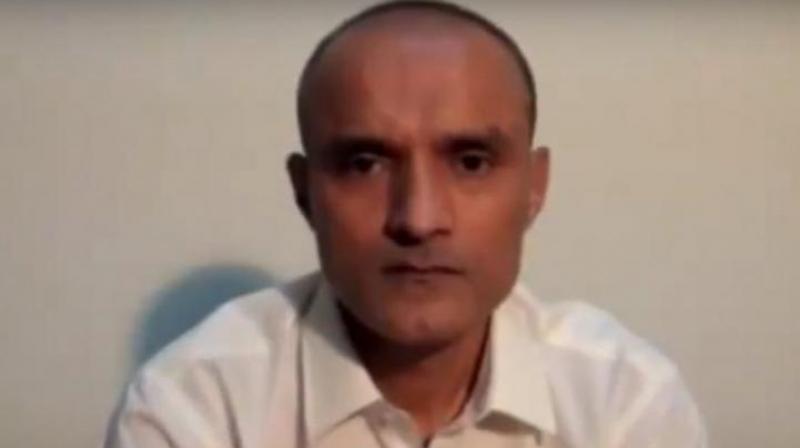Pak laid Jadhav trap' to corner India
The mistake Pakistan made was to imagine it was going to teach India a lesson.

It started with the Narendra Modi government. This business of ending up with Kulbhushan Jadhav and international law troubles. But before the crisis, the genesis. Neither side will easily agree and, in a historical sense, Indo-Pak can go back 70 years. Who started what, why and when — the arguments are endless. But Narendra Modi was different. Or at least he was willing to try something different. On, then, to the story.
When Kashmir began to simmer again, an opening presented itself. Since Mumbai, Pakistan had been on the defensive. Anything it said anywhere on the international stage, it either got beat up on for non-states or was met with cool indifference. Pakistan complaining about oppression and international law — you’ve got to be kidding us. Add a global eye roll.
Internally too Pakistan was a mess — bombs going off everywhere, vast swathes of the country in the grip of militancy of some kind or the other. Fix your own house first and stop worrying about Kashmir, the world would essentially tell us. But then came Zarb-i-Azb and a kind of stability was achieved. And the renewed confidence was met with an unexpected opportunity:
Kashmir started simmering again. Blame it on Mr Modi and his egregiousness or the father-daughter Mufti duo and their pusillanimity, but the new Kashmir approach triggered an old response. As Kashmir simmered, Pakistan piped up. Whatever purpose it served, the best thing was that it was legitimate — anyone looking at Kashmir had to know that it was India that was screwing up yet again. High legitimacy aside, there was a more prosaic purpose though. In raising its voice for the oppressed people of Kashmir, Pakistan was helping counter what it saw as Indian propaganda against it. It made a kind of sense too. If India was determined that the conversation never move on from Mumbai, a simmering Kashmir could at last help change that.
But then Mr Modi did something unexpected. In response to Pakistan’s response, he went down the Balochistan route. Suddenly, India was banging on about alleged Pakistani atrocities in Baloch-istan.Balochistan isn’t Kash-mir — India could try and equate the two, but there isn’t a market for that. But the thuggishness of the Modi strategy had an aspect that few gave much thought to: Pakistan’s response. Pakistan upped the ante.
Enter Kulbhushan Jadhav. Turns out, Pakistan wasn’t going to let it rest at the utter ineffectiveness of the Modi strategy. Trying and failing to equate Balochistan with Kashmir could have simply been interpreted as foolish audacity or the haplessness of the naive. Pakistan interpreted it differently. The mere mention of Balochistan was seen as menacing and malign. It could not go unanswered. From there began a chain of events. The Kulbhushan train had been set in motion. Whether Mr Jadhav has done all that he has been accused and convicted of can be debated. But in a matter-of-fact way his profile and placement indicate some kind of spycraft. The mistake India made was in assuming Mr Jadhav could not be or would not be caught. That somehow the unspoken rules of the spy wars would hold.
But once India tried to change the rules in one area — to try and equate Balochistan with Kashmir — it had opened the door to Pakistan changing the rules in another area. The mistake Pakistan made was to imagine it was going to teach India a lesson. India was always going to be enraged by the Jadhav capture and conviction. But what Pakistan did not anticipate is that India may get creative.
Pakistan is not stuck in the ICJ, but Mr Jadhav was never about legal minutiae. It was about teaching India a lesson. That necessarily is a battle of perceptions. In Mr Jadhav, Pakistan intended to get India to back off on the Balochistan stuff and let the world know that India too is up to mischief.
By arrangement with Dawn

